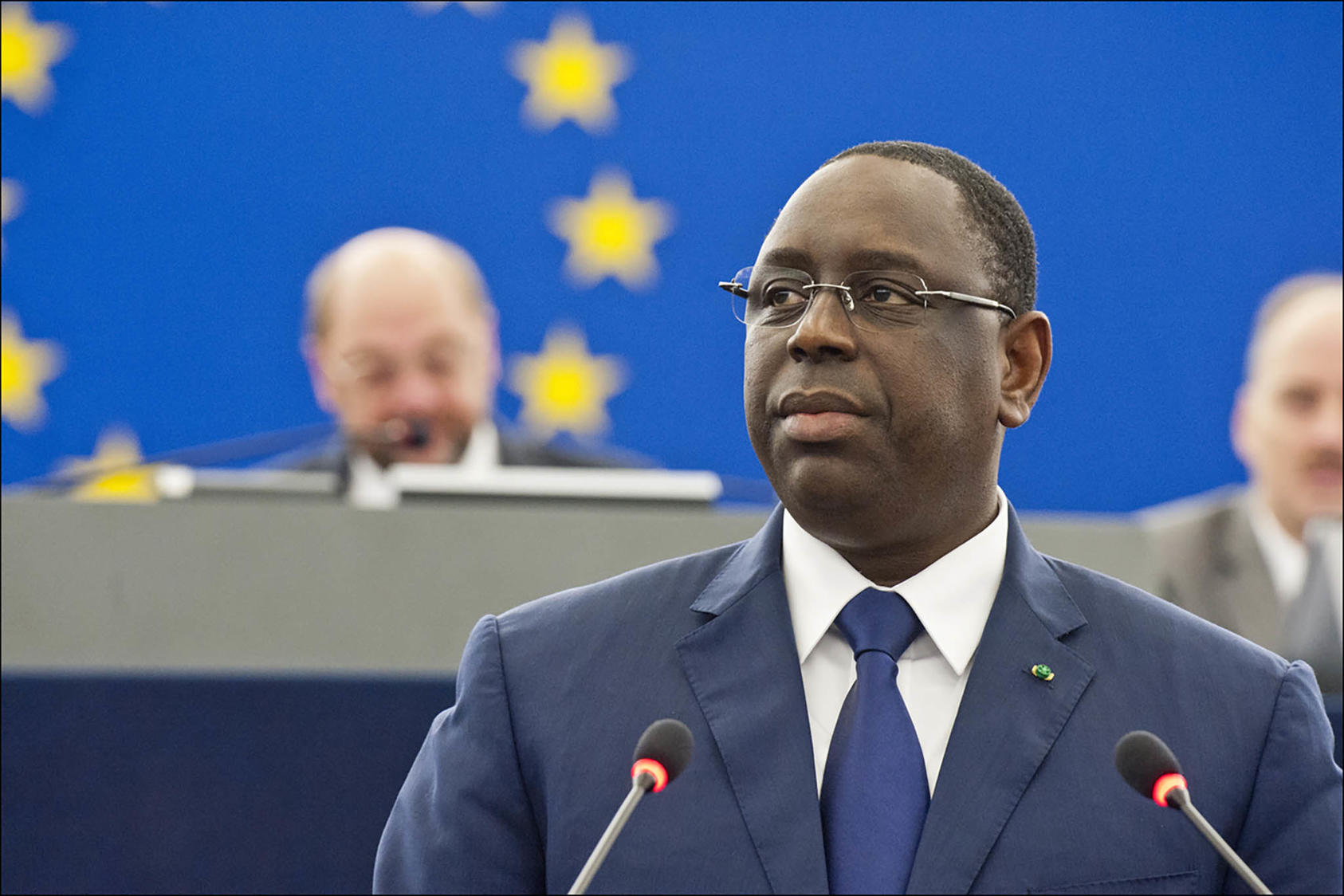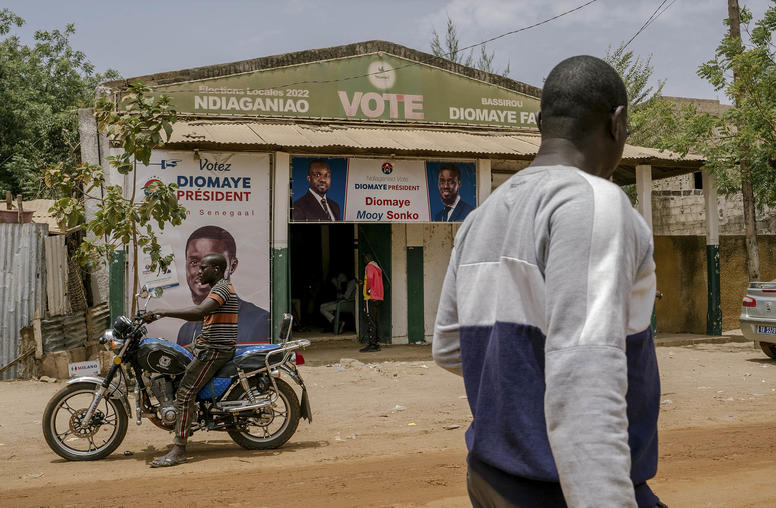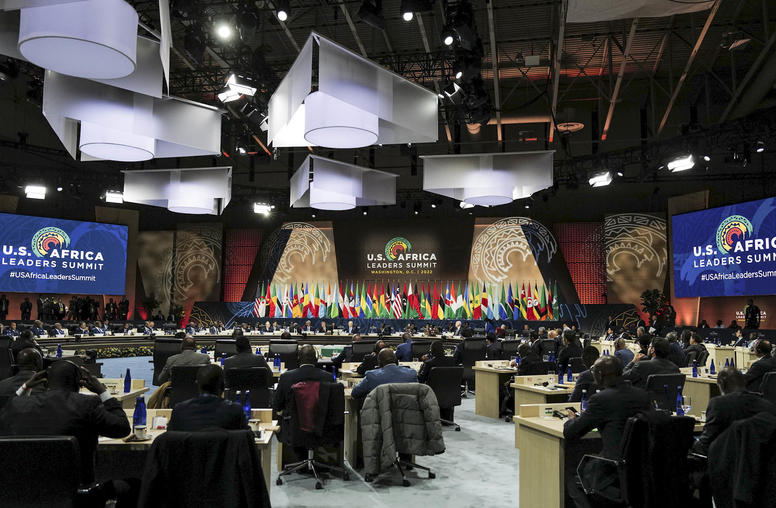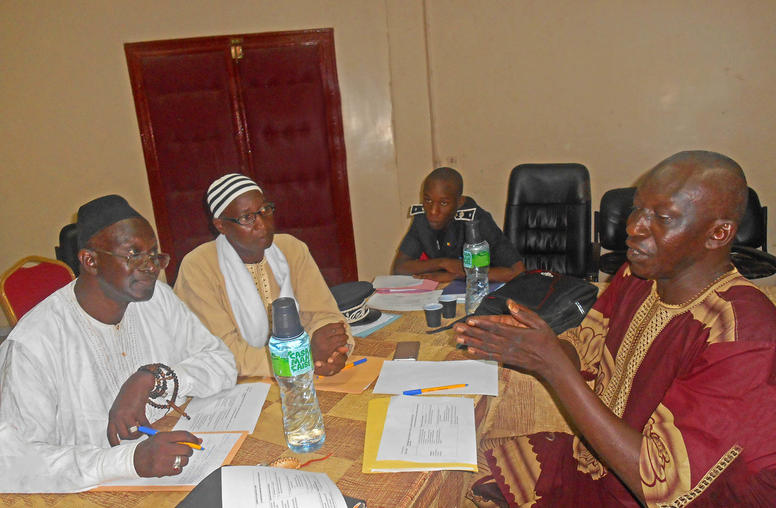Suddenly, Senegal Is a New Risk for Democracy in Africa
U.S., African and international partners should join to help Senegalese defend constitutional rule.
The sudden actions by Senegal’s president to postpone this month’s presidential election by 10 months threaten to seriously undermine political stability and peace in a nation that has been a resilient democracy in West Africa, where multiple military coups d’état have occurred in recent years. This move poses risks of authoritarianism, violence and economic setbacks for Senegal’s 17 million people, and deeper regional insecurity. Friends of Senegal and democracy, in the United States, Africa and beyond, must unite behind the clear desire of Senegal’s people to maintain peaceful, freely elected democracy under its constitution.

Senegal’s Vital Role
Senegal has been a valuable international partner for peace and democracy since its independence in 1960 — one of few nations in Africa that has never suffered a military coup. At home, Senegal has used its constitution, regular elections and peaceful transfers of government authority to build a democracy rooted in a social consensus that respects communal and religious pluralism.
To be sure, that democracy has remained a work in progress. Senegalese civic leaders warn that recent changes to election rules and politically motivated prosecutions of opposition leaders have constricted democratic competition. Senegal’s people are among the most adamant in Africa in preferring democracy as their mode of governance, according to repeated surveys by the independent research group, Afrobarometer — but most Senegalese say their democracy has been weakened in the past five years.
Senegal’s stability has grown only more important over recent years in which disparate insurgencies and eight armed coups around the Sahel region have spread violence and left 150 million people under military rule. A critical threat to African and international stability is a spread of violent crises from the Sahel — now the world’s largest contiguous region of military rule — across the immensely more populous coastal West African states such as Senegal.
Let us make no mistake: The perils of the moment are high.
Flirting With Crisis
Senegal’s fourth president, Macky Sall, has led the government since 2012 and promised to respect the constitutional limit of two terms in office, which requires the election of his successor before his mandate expires in April. With that election just three weeks away, on February 25, President Sall announced on Saturday a decision to postpone the vote indefinitely. Sall cited risks from disputes over which candidates can be listed on the ballot — disputes that his administration, and a presidentially appointed constitutional council, have largely created by barring prominent opposition figures or their parties from the electoral process.
On Monday, the National Assembly voted to delay elections until December 15, a step that would carry Senegal onto dangerous, unpredictable terrain: an unconstitutional extension of Sall’s presidency. Worse, that parliamentary vote was marred by the authorities’ forcible removal beforehand of legislators who were protesting the proposed election delay, and by other government steps to suppress the public outcry over the postponement. The government cut cellphone access to the internet and suspended broadcasts of an independent television channel, drawing protests from the national journalists’ union.
The election postponement triggered immediate street protests, citizens’ confrontations with riot police and arrests. Prominent Muslim and Catholic clerics are among the civil society leaders who have urged the government to adhere to the electoral calendar.
This threat of an unconstitutional and illegal political maneuver risks deeper crises, including political upheaval, a declaration of emergency rule, a military coup — and with it all, economic losses and human suffering. To see the dangers, we need look no further than Senegal’s neighbor, Guinea. There, President Alpha Condé served the constitutional limit of two terms in office — and then used his office to arrange a disputed 2020 referendum to remove that limit, even though more than 80 percent of Guineans supported it, according to Afrobarometer’s survey data. Condé won his extension of power but so damaged his country’s democratic institutions that he was overthrown the next year in a military coup.
In the past decade, more than a dozen African heads of state have altered constitutions or otherwise undermined two-term limits to extend their hold on power, experts have noted, a weakening of democratic governance that has often triggered violence, including coups. Recent events, plus research data, underscore that Senegal has been on this path of democratic erosion. “Fewer than half of Senegalese say they are satisfied with the way democracy works in the country, a significant decline compared to 2014,” the research group Afrobarometer noted this week, “and a majority think the country is less democratic than it was five years ago. While most citizens say their president must always obey the country’s laws and courts, a growing share say their president ignores them.”
Both in Africa and beyond, the international community has too often responded ineffectually, and too late, to these early stages of democratic erosion. The sudden risk of democratic collapse in Senegal is an imperative moment in which to do better.
How to Support a Democracy
Appropriately the Economic Community of West African States, the African Union, the U.S. government, plus human rights, prodemocracy and journalists’ organizations, have spoken up in support of the Senegalese’ insistence on sustaining democracy through free elections. International partners must now follow up with consistent, high-level mobilization — a unified campaign with Senegal’s political constituencies, business leaders, religious communities and civil society — to support steps such as these:
- An agreement, negotiated among Senegal’s political constituencies and validated by Senegal’s Constitutional Council, to ensure that President Sall steps down at the end of his constitutional term in April — and that elections are held on a schedule congruent with Senegalese law.
- Encouragement from Senegal’s business community and labor organizations for political leaders and forces to ensure the dialogue and concessions necessary to reach agreements on peaceful, legal elections and a transfer of power. Economic leaders should underscore to political elites, and also work to mitigate, the potential economic damage from a full-blown political crisis.
- A broad political agreement among all parties and presidential candidates to reject and counter all acts of political violence. Senegal’s close neighbor, Liberia, just conducted a laudable election and peaceful transfer of power with the help of such a multiparty pact, the Farmington River Declaration.
- Civil society and grassroots groups’ adherence to nonviolence — similar to that in recent years by Sudan’s courageous prodemocracy movement — as they exercise their rights to defend free, fair and transparent elections. A vital element in maintaining peace will be to promote community-level dialogues, notably with support of religious leaders, to resolve conflicts that now risk being heightened by the political tensions around the next presidential vote.
- Outreach by U.S., African and other military and police officials to their counterparts in Senegal to underscore the need to sustain their long-established professionalism — avoiding actions that would stray from their constitutional roles or exacerbate political instability, and protecting the rights of citizens. Senegal’s military and police have had broad international engagements — through peacekeeping operations, military exercises and joint training — and thus many international contacts through which to receive that message.
- Outreach by U.S. officials to share with their Senegalese colleagues that if Senegal’s illegal political maneuvers are judged to be a seizure of power or should lead to a military coups, the United States would be required by law to impose economic sanctions and break off many of its current military ties.
The next three months will be critical for Senegal’s long-term political and economic trajectory. If the country’s democracy is derailed, its economy and social fabric will begin to unravel, and its security situation will worsen. For Senegal and for the continent that it has so long helped to lead, a peaceful future with better opportunities for their growing and young populations depends on their opportunities to build and sustain the democracies that they manifestly desire. Now, as in the past, Senegal will help shape the future for the continent destined to be the most influential for our world’s peace or agony in the coming century.



